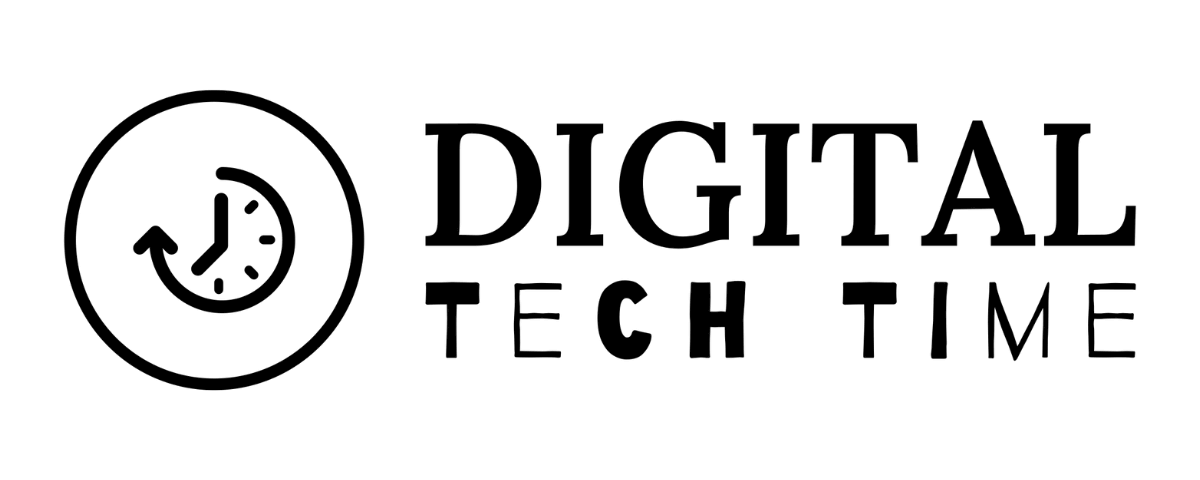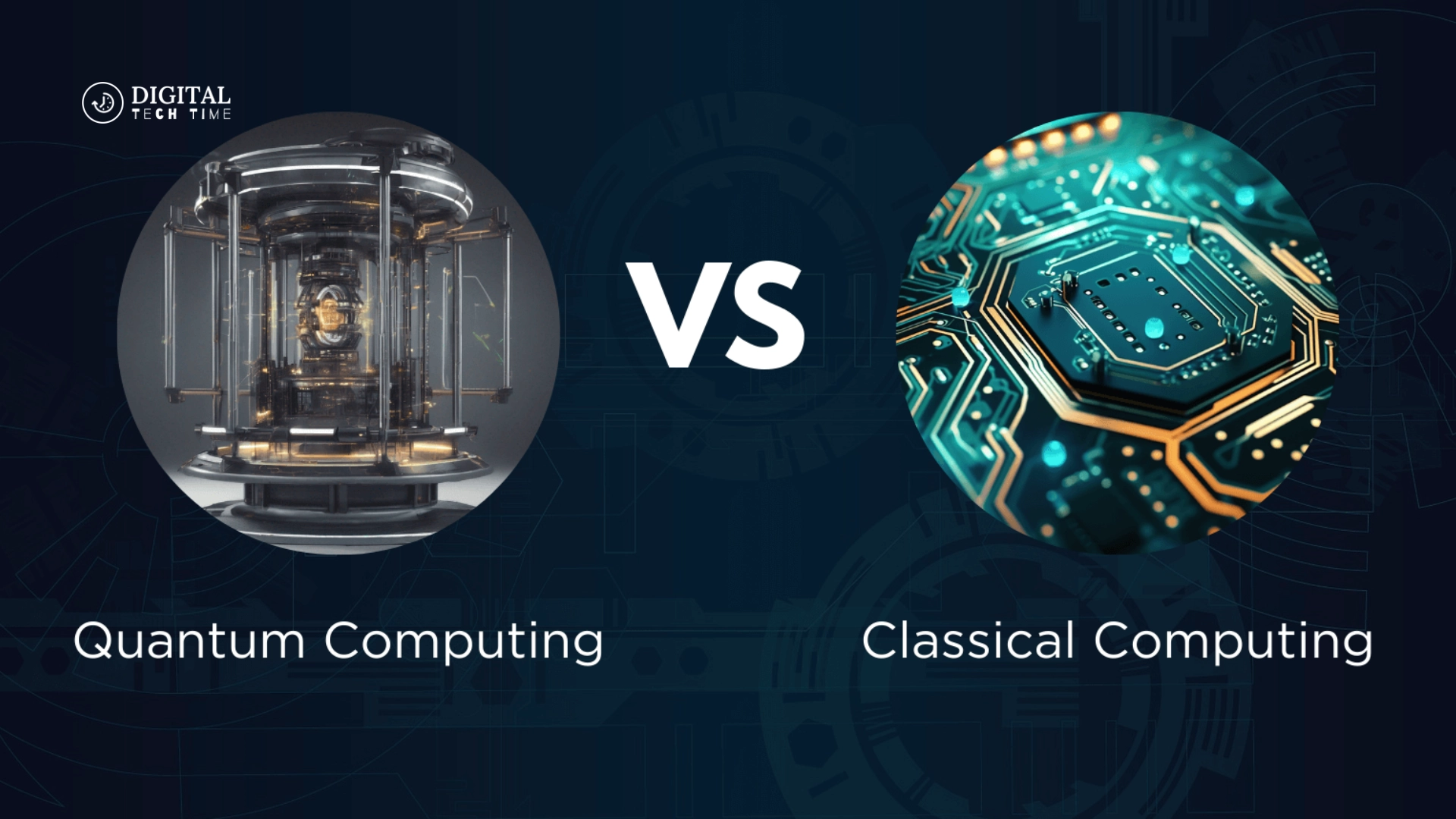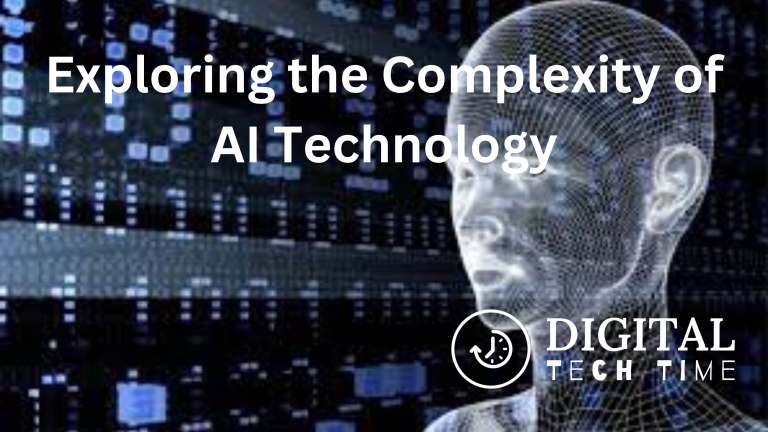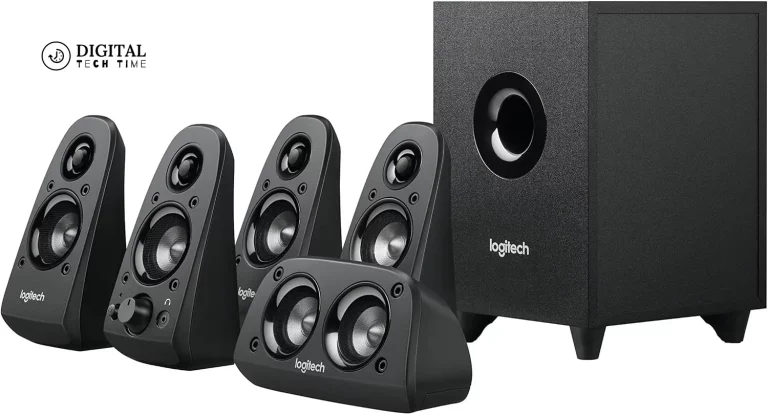The Battle of the Computers: Quantum Computing vs Classical
Two distinct paradigms have emerged in computing: quantum computing and classical computing. These two approaches represent vastly different methodologies, each with unique strengths and limitations. As we delve into the battle between quantum computing and classical computing, we unravel the intricacies that define their respective capabilities and potential applications.
Classical computing, the foundation upon which our modern digital world rests, has driven technological advancements for decades. It relies on the principles of binary logic, where information is represented as a series of ones and zeros. This approach has enabled remarkable achievements, from personal computers to supercomputers, revolutionizing various industries and shaping our daily lives.
Table of Contents
Quantum Computing: How Does it Work?
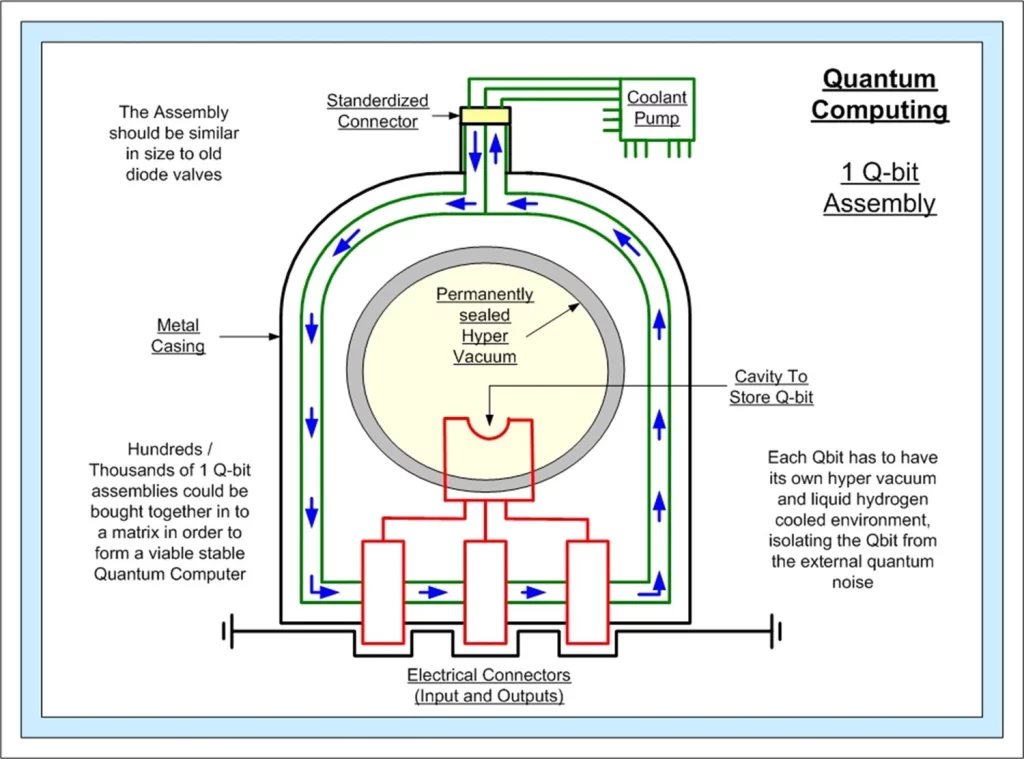
Quantum computing is a fascinating and complex field that harnesses the principles of quantum mechanics to perform computations. At its core, quantum computing operates on the principles of superposition and entanglement, which set it apart from classical computing.
- Qubits: The Building Blocks
- Classical computing relies on bits, which can exist in either a 0 or 1 state.
- Quantum computing, on the other hand, utilizes qubits (quantum bits), which can exist in a superposition of both 0 and 1 states simultaneously.
- This superposition allows qubits to represent and process multiple states concurrently, enabling parallel computations.
- Superposition and Entanglement
- Superposition is a fundamental principle of quantum mechanics, where a quantum particle can exist in multiple states simultaneously until it is measured.
- Entanglement is another crucial concept, where the state of one qubit is inextricably linked to the state of another, even if they are physically separated.
- Entanglement allows quantum computers to perform specific calculations exponentially faster than classical computers, as they can leverage the correlated states of multiple qubits.
- Quantum Algorithms and Computations
- Quantum computers execute specialized algorithms designed to leverage the principles of quantum mechanics.
- These algorithms can perform certain computations significantly faster than their classical counterparts, particularly for problems involving factorization, search, and optimization.
- Examples of quantum algorithms include Shor’s algorithm for factoring large numbers and Grover’s algorithm for efficient search.
- Quantum Error Correction
- Quantum systems are highly susceptible to noise and errors, which can compromise the integrity of computations.
- Quantum error correction techniques are employed to detect and correct errors that may occur during quantum computations, ensuring the reliability of the results.
- Quantum Hardware
- Quantum computers require specialized hardware designed to manipulate and control qubits.
- Various physical systems, such as trapped ions, superconducting circuits, and photons, are being explored as potential platforms for implementing quantum computing hardware.
- Significant challenges exist in scaling up the number of qubits and maintaining their coherence (stability) for extended periods.
While quantum computing is still in its early stages, with ongoing research and development efforts, it promises to revolutionize various fields by tackling problems intractable for classical computers. However, it is essential to note that quantum computing is not a replacement for classical computing but rather a complementary approach, with each paradigm excelling in different domains.
Classical Computing: How Does it Work?
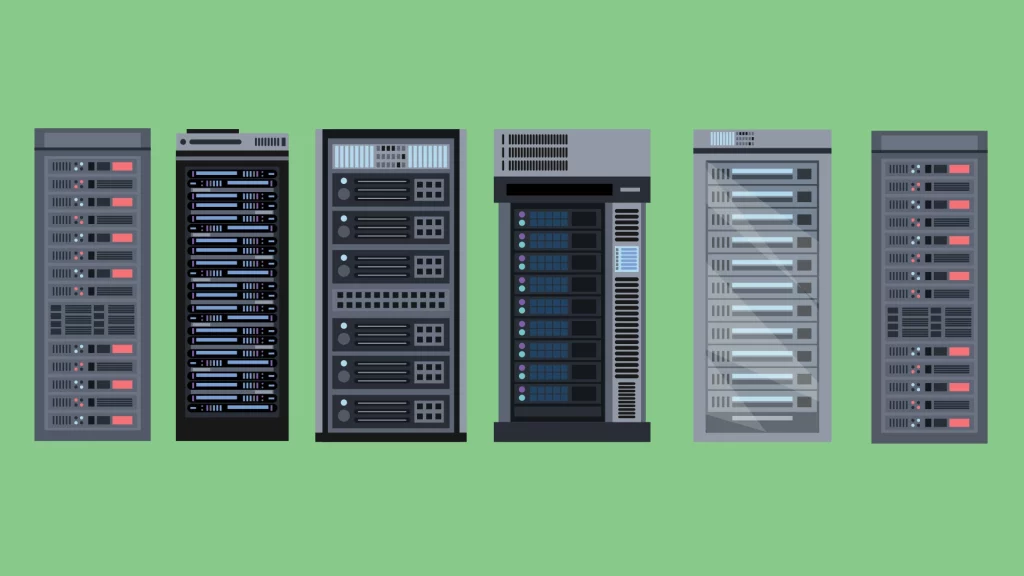
Classical computing, the foundation of our modern digital world, has driven technological advancements for decades. It operates on the principles of binary logic, where information is represented as a series of ones and zeros, known as bits.
- Binary System
- Classical computing relies on the binary system, where information is encoded as a sequence of 0s and 1s, known as bits.
- These bits form the fundamental building blocks of classical computing, enabling the representation and manipulation of data.
- Boolean Logic
- Classical computing is based on Boolean logic, which defines the rules and operations that can be performed on bits.
- Boolean operations, such as AND, OR, and NOT, are used to perform logical operations and implement computational algorithms.
- Digital Circuits
- Digital circuits are the physical implementations of classical computing principles.
- These circuits consist of transistors and other electronic components that manipulate and process bits according to predefined logic gates and algorithms.
- Complex digital circuits form the backbone of modern computer processors, memory units, and other computing hardware.
- Von Neumann Architecture
- The von Neumann architecture is a fundamental design principle that governs the organization and operation of classical computers.
- It separates the main components of a computer into the central processing unit (CPU), memory, and input/output devices, allowing for efficient data processing and execution of instructions.
- Programming Languages and Algorithms
- Classical computing relies on programming languages and algorithms to translate human-readable instructions into machine-readable code.
- These algorithms define the step-by-step procedures for solving problems and performing computations.
- Programming languages provide a structured way to express algorithms and interact with computer hardware.
Classical computing has driven countless technological advancements, from personal computers and smartphones to supercomputers and data centres. Its deterministic and well-defined nature has enabled the development of robust software applications, efficient data processing, and reliable computational models across various domains.
Advantages and Limitations of Quantum Computing

Quantum computing, with its ability to harness the principles of quantum mechanics, offers several advantages over classical computing. However, it also faces significant limitations and challenges that must be addressed for widespread adoption.
Advantages of Quantum Computing
- Parallel Processing: Quantum computers can perform parallel computations by leveraging the quantum superposition principle, where qubits can represent multiple states simultaneously. This capability enables quantum computers to explore various possibilities concurrently, potentially solving complex problems exponentially faster than classical computers.
- Exponential Speedup: Certain algorithms, such as Shor’s algorithm for factoring large numbers and Grover’s algorithm for efficient search, can achieve exponential speedups on quantum computers compared to their classical counterparts. This speedup could revolutionize fields like cryptography, optimization, and simulation.
- Quantum Simulation: Quantum computers are well-suited for simulating quantum systems, which are notoriously difficult to model accurately on classical computers. This capability could lead to materials science, chemistry, and drug discovery breakthroughs.
- Data Security: Quantum computing can enhance data security through quantum cryptography and key distribution. These techniques leverage the principles of quantum mechanics to ensure secure communication and data transfer.
Limitations of Quantum Computing
- Noise and Decoherence: Quantum systems are highly susceptible to noise and environmental interference, which can cause decoherence and errors in computations. Maintaining the stability and coherence of qubits for extended periods is a significant challenge.
- Scalability: Building large-scale quantum computers with many qubits is a formidable task. As the number of qubits increases, the complexity of controlling and maintaining their coherence grows exponentially.
- Error Correction: Quantum error correction techniques are required to detect and correct errors that may occur during quantum computations. However, implementing practical error correction algorithms can be resource-intensive and limit overall computational efficiency.
- Limited Applications: While quantum computers excel at specific tasks, such as factoring large numbers and efficient search, their applicability to general-purpose computing still needs to be improved. Classical computers are still better suited for many everyday tasks and applications.
- Hardware Challenges: Building quantum computers requires specialized hardware and materials that can maintain and control the quantum states of qubits. Developing scalable and reliable quantum hardware is a significant engineering challenge.
Advantages and Limitations of Classical Computing
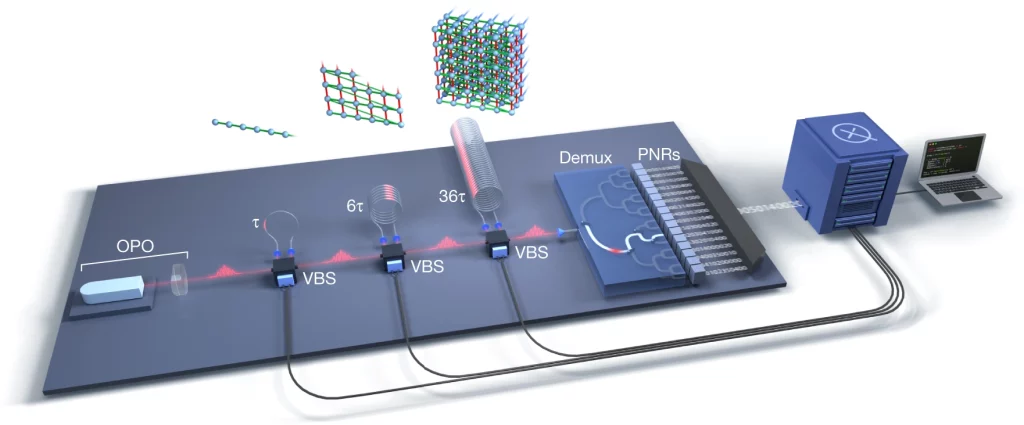
Classical computing, the foundation of our modern digital world, has driven technological advancements and shaped our daily lives. While it has proven its efficacy and reliability, it has advantages and limitations.
Advantages of Classical Computing
- Maturity and Reliability: Classical computing has a long history and has undergone continuous refinement and optimization over decades. It is a well-established, reliable technology with robust hardware and software ecosystems.
- General-Purpose Computing: Classical computers are versatile and can be programmed to perform various tasks, from simple calculations to complex simulations and data processing. They are suitable for a vast array of applications across multiple domains.
- Deterministic Behavior: Classical computing follows a deterministic approach, where the output of a computation is predictable and consistent given the same input and initial conditions. This deterministic nature provides reliability and predictability, essential for many applications.
- Scalability: Classical computing systems can be scaled up relatively quickly by adding more hardware resources, such as processors, memory, and storage. This scalability allows for handling larger datasets and more complex computations.
- Established Infrastructure: Classical computing benefits from a well-developed infrastructure, including programming languages, software tools, libraries, and development environments. This ecosystem facilitates efficient software development and maintenance.
Limitations of Classical Computing
- Exponential Complexity: Certain problems, such as factoring large numbers or performing efficient searches, become exponentially more complex as the problem size increases. Classical computers need help to solve these problems efficiently due to their inherent limitations.
- Simulation of Quantum Systems: Classical computers face significant challenges in accurately simulating and modelling quantum systems governed by the principles of quantum mechanics. This limitation hinders progress in materials science, chemistry, and quantum physics.
- Data Security Vulnerabilities: Classical cryptographic systems, while robust, are vulnerable to potential attacks from quantum computers. As quantum computing advances, existing encryption methods may become obsolete, necessitating the development of new security protocols.
- Energy Efficiency: Classical computers consume significant amounts of energy, especially as they scale up in size and computational power. This energy consumption has environmental and economic implications, driving the need for more energy-efficient computing solutions.
- Parallel Processing Limitations: While classical computers can perform parallel processing to some extent, they are fundamentally limited by the von Neumann architecture and the sequential nature of their instruction execution. This limitation restricts their ability to leverage parallel computing for certain types of problems fully.
Applications of Quantum Computing
Quantum computing, with its ability to harness the principles of quantum mechanics, holds the promise of revolutionizing various fields by tackling problems intractable for classical computers. While still in its early stages, quantum computing has the potential to unlock groundbreaking applications across multiple domains.
- Cryptography and Cybersecurity:
- Quantum computers could break many encryption methods for secure communication and data protection.
- However, they also offer the opportunity to develop quantum-resistant cryptographic algorithms and enhance cybersecurity through quantum key distribution and quantum cryptography.
- Optimization and Logistics:
- Quantum algorithms like Grover’s algorithm could be used for efficient search and optimization problems, leading to improved supply chain management, scheduling, and route planning.
- This could result in significant cost savings and efficiency gains in various industries, such as transportation, logistics, and manufacturing.
- Drug Discovery and Molecular Simulations:
- Quantum computers could accurately simulate and model complex molecular structures and interactions, enabling more efficient drug discovery processes and accelerating the development of new pharmaceuticals.
- This capability could also be applied to materials science, allowing for designing and developing new materials with desired properties.
- Finance and Risk Analysis:
- By efficiently handling complex calculations and simulations, Quantum computing could revolutionize financial modelling, portfolio optimization, and risk analysis.
- This could lead to more accurate predictions, better investment strategies, and improved risk management practices in the financial sector.
- Artificial Intelligence and Machine Learning:
- Quantum computing could enhance certain aspects of artificial intelligence and machine learning by enabling more efficient training of complex models and solving optimization problems more effectively.
- This could lead to natural language processing, computer vision, and pattern recognition breakthroughs.
- Quantum Sensing and Metrology:
- Quantum sensors could be used for exact measurements and detecting various physical phenomena, such as gravitational waves, magnetic fields, and environmental conditions.
- This could have applications in navigation, medical imaging, and environmental monitoring.
- Quantum Simulation:
- Quantum computers could accurately simulate and model complex quantum systems, enabling a more profound understanding and exploration of quantum phenomena.
- This could lead to advancements in fields like quantum physics, chemistry, and materials science, potentially developing new materials and technologies.
While these applications are still in the exploratory and research stages, the potential of quantum computing is vast. It could lead to groundbreaking discoveries and innovations across various domains. However, it is essential to note that quantum computing is not a replacement for classical computing but rather a complementary approach, with each paradigm excelling in different areas.
Applications of Classical Computing

Classical computing has been the driving force behind countless technological advancements. It has permeated almost every aspect of our daily lives. Its applications span various domains, from personal computing and entertainment to scientific research and industrial automation.
- Personal Computing and Productivity:
- Classical computers power our desktop and laptop devices, enabling us to perform tasks like word processing, spreadsheet calculations, multimedia editing, and internet browsing.
- They also facilitate communication and collaboration through email, video conferencing, and cloud-based applications.
- Entertainment and Media:
- Classical computing plays a crucial role in the entertainment industry, powering video games, streaming platforms, and multimedia content creation.
- It enables realistic graphics rendering, immersive virtual environments, and seamless delivery of digital content to users worldwide.
- Scientific Research and Simulations:
- Classical computers are essential tools for scientific research, enabling complex simulations, data analysis, and computational modelling across various fields, including physics, biology, astronomy, and climate science.
- They facilitate the processing of large datasets, visualization of complex phenomena, and the development of predictive models.
- Business and Finance:
- Classical computing is the backbone of modern business operations, enabling tasks such as financial analysis, customer relationship management, supply chain optimization, and enterprise resource planning.
- It supports e-commerce platforms, online banking, and secure financial transactions, driving the global economy.
- Healthcare and Medical Research:
- Classical computers are instrumental in medical research, enabling imaging and data analysis for diagnostics, drug development, and personalized medicine. They also support electronic health records, telemedicine, and medical device control systems.
- Manufacturing and Industrial Automation:
- Classical computing is vital in modern manufacturing processes, enabling computer-aided design (CAD), computer-aided manufacturing (CAM), robotics, and industrial control systems.
- It facilitates precision engineering, quality control, and optimized production lines, increasing efficiency and cost savings.
- Transportation and Logistics:
- Classical computers are essential for navigation systems, fleet management, route optimization, and traffic control.
- They enable real-time tracking, scheduling, and coordination of transportation networks, ensuring efficient movement of goods and people.
- Education and e-Learning:
- Classical computing has revolutionized education by enabling online learning platforms, digital textbooks, virtual classrooms, and interactive educational resources.
- It facilitates personalized learning experiences, remote collaboration, and access to vast knowledge repositories.
- Artificial Intelligence and Machine Learning:
- While quantum computing holds promise for certain aspects of AI, classical computing remains the primary driver of current AI and machine learning applications.
- It powers natural language processing, computer vision, predictive analytics, and intelligent decision-making systems in various industries.
- Internet and Cloud Computing:
- Classical computing underpins the entire internet infrastructure, enabling global connectivity, data transfer, and cloud-based services.
- It supports web browsing, social media platforms, online collaboration tools, and storing and retrieving vast amounts of data.
Related Post: Why Might Businesses Be Interested in Using Quantum Computers
Frequently Asked Questions (FAQs)
What is the fundamental difference between quantum computing and classical computing?
Classical computing operates on the principles of binary logic, where information is represented as ones and zeros. In contrast, quantum computing harnesses the principles of quantum mechanics, utilizing qubits that can exist in a superposition of states.
How does quantum computing achieve faster computations?
Quantum computers can perform parallel computations by leveraging the superposition of qubits, allowing them to explore multiple possibilities simultaneously. This capability enables quantum computers to solve specific problems exponentially faster than classical computers.
What are the main challenges facing quantum computing?
Key challenges include maintaining the stability and coherence of qubits, scaling up the number of qubits while controlling their interactions, developing effective error correction techniques, and building reliable quantum hardware.
Will quantum computing replace classical computing?
It is unlikely that quantum computing will entirely replace classical computing. Instead, they are expected to coexist and complement each other, with each paradigm excelling in different domains and applications.
What are the potential applications of quantum computing?
Potential applications include cryptography and cybersecurity, optimization and logistics, drug discovery and molecular simulations, finance and risk analysis, artificial intelligence and machine learning, quantum sensing and metrology, and quantum simulation.
Conclusion
As we delve into the intricacies of quantum computing and classical computing, it becomes evident that these two paradigms are not locked in a zero-sum battle for supremacy. Instead, they are destined to coexist and complement each other, each excelling in its domain and contributing to the collective advancement of computing capabilities.
